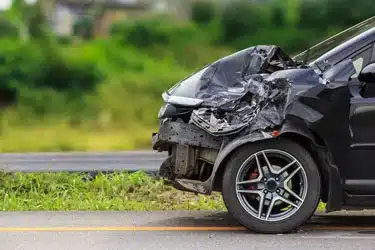Colorado Car Insurance Laws: What Drivers Need To Know
Auto Insurance Requirements in the State of Colorado
Drivers in Colorado are required by law to hold liability coverage of at least $25,000 per person for bodily injury, $50,000 per accident for bodily injury, and $15,000 per accident for property damage.
In the state of Colorado, drivers who are responsible for a car crash are financially responsible for any resulting injuries or property damage.
In Colorado, automobile insurance is a requirement by law. Drivers or individuals who own motor vehicles in the state of Colorado are required to carry certain types of automobile coverage.
Even in situations where an at-fault driver has sufficient motor vehicle insurance, dealing with an insurance company is still often a stressful experience for individuals.
Fortunately, a skilled Colorado car accident attorney can help an individual respond to the various issues related to automobile insurance coverage that might arise.
Contact us online or call today at (719) 249-0541 for a free consultation.
Colorado Auto Insurance Laws
Law in the state of Colorado requires that every owner of a motor vehicle who operates a vehicle on public highways or knowingly permits the operation of a motor vehicle on the public highways of the state must fully comply with various auto insurance requirements.
Drivers are required, for example, to carry a minimum amount of \$25,000.00 in liability insurance to cover the injuries that driver may cause to other motorists or pedestrians as a result of his or her negligence.
Minimum Auto Insurance Requirements in Colorado
If a Colorado motor vehicle driver can afford to carry more insurance than minimum requirements, it is usually a wise idea to do so.
Colorado insurance law, however, requires that motorists carry certain types of insurance coverage with minimum liability limits, including the following:
Bodily Injury Liability
This type of Colorado auto insurance coverage protects individuals who cause an accident in which someone else is injured or even killed.
The state of Colorado requires that motor vehicle operators carry at least \$25,000 per person for bodily injury and \$50,000 per accident for bodily injuries. This type of agreement is often referred to as “25/50”.
Collision Coverage
This type of coverage applies to damage to a car if one vehicle collides with another car, a wall, or any other object.
The state of Colorado does not require individuals to carry collision coverage, but individuals who have an automobile loan from a bank might be required to carry collision coverage as a term of the loan.
Comprehensive Coverage
This type of auto insurance in Colorado applies to any case where an individual’s vehicle is stolen or damaged in ways that do not involve a collision.
Some of the various situations to which comprehensive coverage applies include encounters with wildlife, earthquakes, explosions, falling objects, fire, flood, hail, and theft.
Comprehensive coverage is optional in the state of Colorado but may be required as a term of a loan.
Medical Payments Coverage
As of January 1, 2009, the state of Colorado requires that insurers offer $5,000 in coverage. Individuals can choose not to buy medical payment coverage or purchase a different amount, but must do so in writing or in the same manner that the parties buy insurance like over the internet or telephone.
Property Damage Liability
This coverage protects individuals who damage someone else’s property. This property in question is often someone else’s automobile, but property damage can include buildings, garage doors, utility poles, and other types of physical property.
Colorado car insurance laws require individuals to carry a limit of $15,000 per occurrence.
Uninsured or Underinsured Motorist Coverage
This type of protection applies to a variety of personal injuries such as physical injuries, pain and suffering, lost wages, and medical and other expenses incurred when an individual is hit negligently by a driver who lacks adequate automobile insurance.
In the state of Colorado, insurers are required to offer Uninsured or Underinsured Motorist Coverage of $25,000 for uninsured motorists and $50,000 for underinsured motorists. This coverage can also be waived in writing, but it is important coverage that should not be waived.
Examples of Issues That Create Complicated Insurance Situations
There are many issues that can arise concerning Colorado car insurance coverage, which include but are certainly not limited to the following examples:
- Drivers who are responsible for a car crash might not have legally required liability insurance.
- Drivers who are responsible for a car crash but do not have enough insurance.
- Issues concerning medical payments from the medical payments provisions of insurance policies frequently arise.
Contact a Colorado Auto Accident Lawyer For Help
For assistance navigating insurance and liability issues after an accident in Colorado, please don’t hesitate to reach us online or call (719) 249-0541 today for a free consultation.







